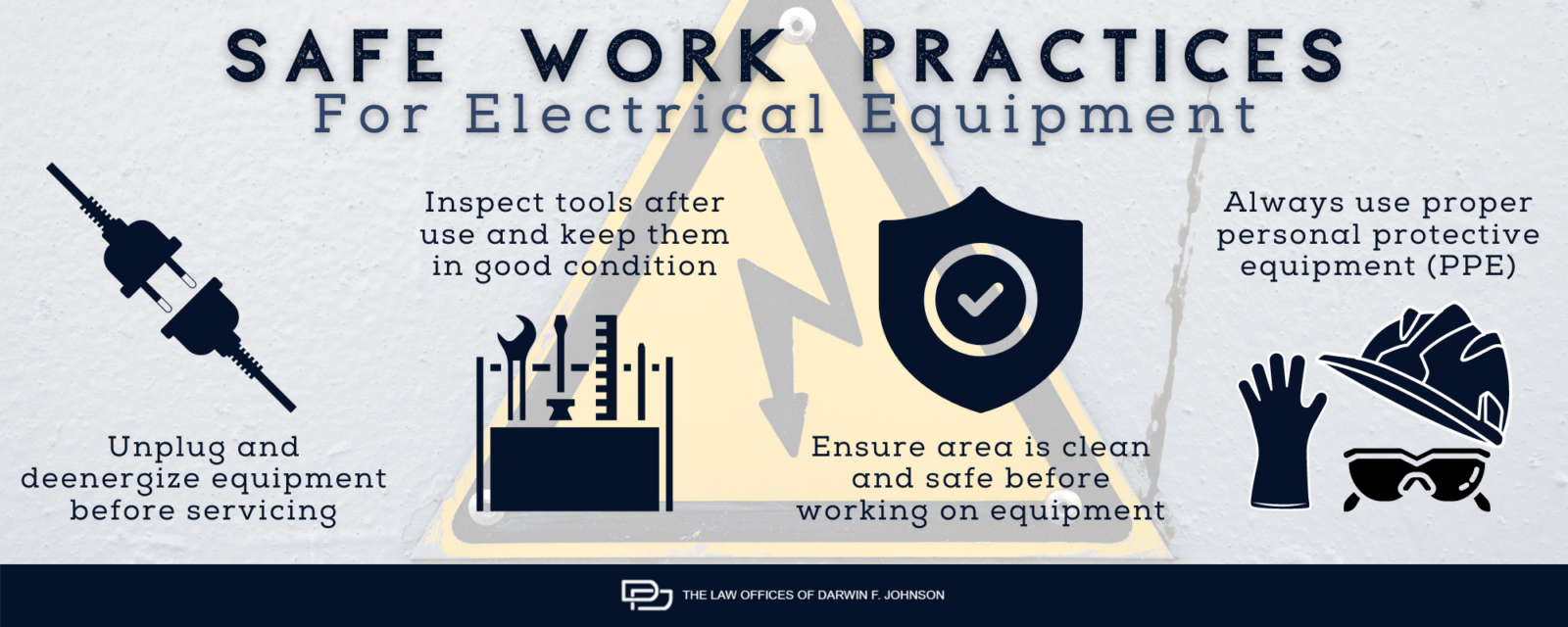Avoiding Electrical Accidents in the Workplace
By Darwin F. Johnson on October 2nd, 2020 in Atlanta Workers Comp, injury prevention, Savannah Worker's Comp, work injuries, work injury, Workers Compensation, workplace injuries, workplace injury
Electricity is something that, undoubtedly, we all encounter and use every day. While we’re all familiar with the proper safety precautions to take in our homes, electricity use in the workplace requires additional measures, as you may be working with dangerous equipment or high voltages. In these instances, it is essential to follow these processes and procedures in order to protect employees.
Here are several tips that you can use to help avoid electrical accidents in your workplace.
Insulate Exposed Conductors
Exposed metal and other conductors should be properly insulated to stop or reduce the flow of electrical current. Some common insulating materials include:
- Glass
- Rubber
- Mica
- Plastic
When choosing the proper insulation, you’ll need to consider both the voltage being used and any other potential hazards in the environment, such as water or moisture, oil, or gasoline.
Keep Electrical Equipment Guarded
One of the simplest ways to ensure that unauthorized employees and anyone visiting your facility don’t come into contact with the live electrical equipment is to have it guarded. In other words, it is enclosed and only accessible to people who are authorized to work on the equipment. According to OSHA’s regulations, if an electrical machine has exposed parts operating at 50 volts or more, then it should be placed in its own room or elevated somewhere on a balcony or platform, away from the main floor. It should also be conspicuously labeled with the appropriate hazard word (such as Danger, Caution, or Warning).
Make Sure All Equipment Is Grounded
Grounding should not be the first line of defense against accidents, but it does significantly reduce the risk of electrical shock. It prevents the dangerous buildup of high voltage by creating a low-resistance path to the ground. There are two types of grounds: a service or system ground, and an equipment ground. The former protects the machine against damage, while the latter protects the operator.
Exercise Safe Work Practices
While the above procedures are some of the most important things that you can do in terms of safety for everyone at your facility, there are a few best practices that employees should be aware of when using electrical equipment:

Hurt in an Electrical Accident?
If you’ve been injured in an electrical accident while on the job, our reputable workplace injury lawyers are ready to assist you. Contact us today to schedule a free consultation.
